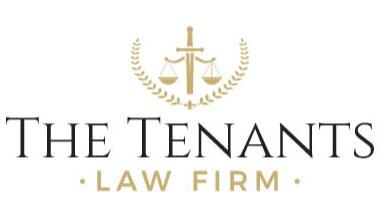What Maintenance Repairs Are Covered Under REAP?
If your landlord has neglected to complete necessary repairs, you may be protected by the Rent Escrow Account Program.
The Rent Escrow Account Program (REAP for short) is a program administered and enforced by the Los Angeles Housing Department (LAHD). REAP was designed to protect the health and safety of tenants, ensuring that landlords fulfill their duty of upholding suitable living conditions in-unit and are held accountable in cases where standards for living conditions are violated.
What does it take for a property to be accepted into REAP?
If a property is discovered to have issues that impact habitability, either during a routine inspection or an inspection requested by tenants, the LAHD issues a compliance notice to landlords informing them that they must amend any problems in-unit that negatively impact its habitability.
If the landlord does not repair the issues in question within the time allotted by LAHD, a general manager’s hearing is held to review the violations. During the hearing, landlords have the opportunity to appeal and contest any violations. If REAP is found to be applicable to the situation, the property is placed in REAP.
What happens once a property is in REAP?
Once a property is in REAP, a number of things happen, including the following:
1. Tenants pay their rent money to LAHD where it is placed in an escrow account.
2. Tenants are entitled to a rent reduction depending on the severity of the habitability violations; usually, the deduction ranges from 10-50%.
3. Landlords are charged a $50 fee each month for each unit and are barred from refinancing or selling a property.
What repairs are covered under REAP?
REAP is predicated on the Implied Warrant of Habitability, a civil code requiring landlords to uphold sufficient living conditions and routine maintenance to protect the health and safety of tenants. Standards of habitability extend to health, sanitation, safety, and structural concerns, meaning landlords have to maintain these facilities in accordance with the habitability warrant.
REAP comes into play when these standards—and the Implied Warrant of Habitability—are violated, for example, when a landlord might neglect to address a plumbing issue that negatively impacts a property’s habitability.
As dictated by the Implied Warrant of Habitability, repairs on the following issues (among others) are covered by REAP:
1. Water and weather damage
2. Plumbing and electrical systems
3. Sewage disposal systems and garbage receptacles
4. Heating systems
5. Pest control
6. Paint, wall, and floor damage
7. Amenities like appliances
We are here to help.
REAP exists to protect tenants and ensure they are afforded suitable living conditions by their landlords. Navigating REAP and the protections tenants are entitled to can be difficult, but our experienced team here at Tenants Law Firm is here to help. Please do not hesitate to reach out to us at this link here or by calling (310) 432-3200.

